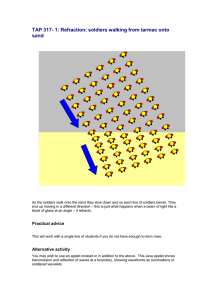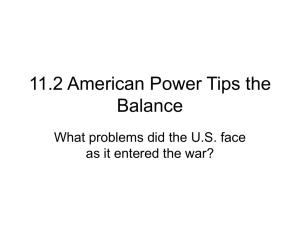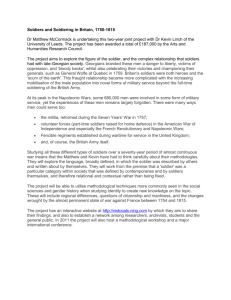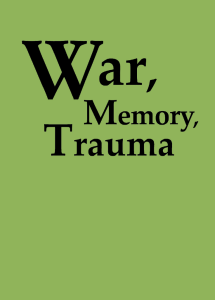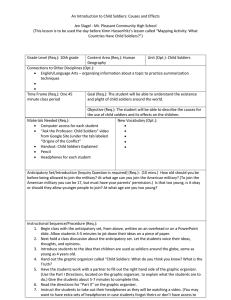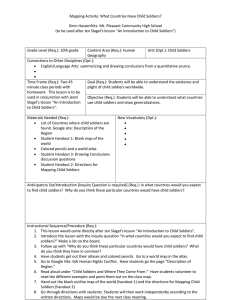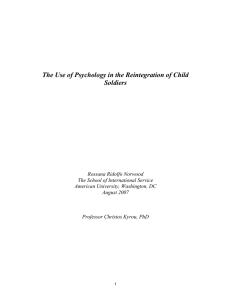Imaging War – Imagining the Nation 30th-31st May 2015
advertisement
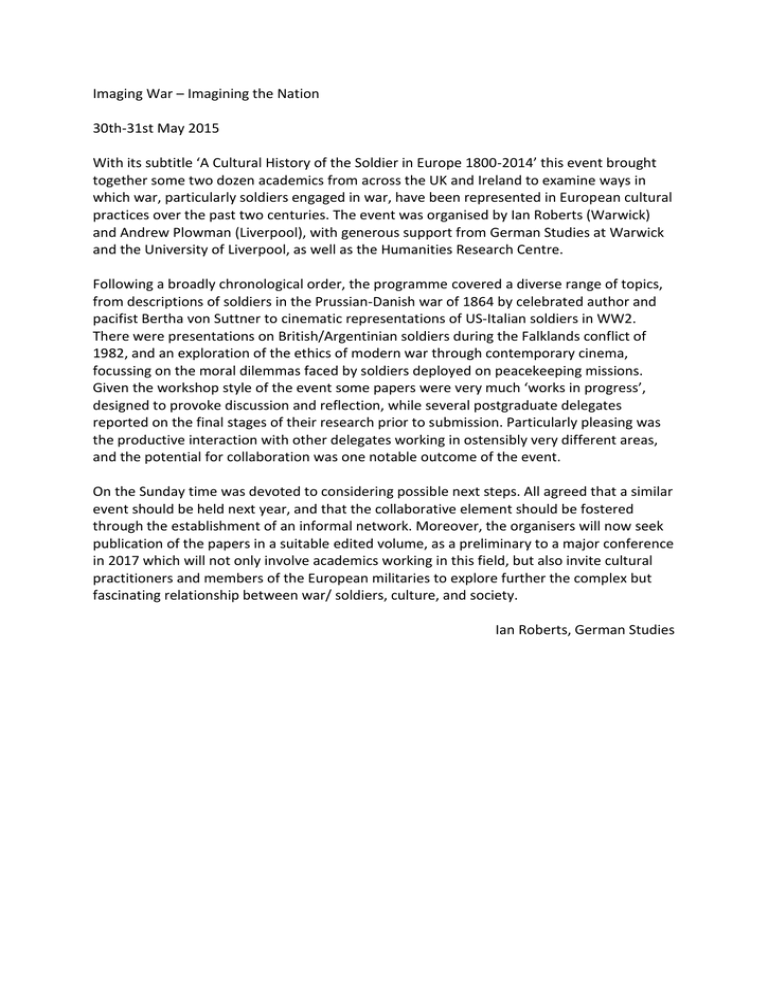
Imaging War – Imagining the Nation 30th-31st May 2015 With its subtitle ‘A Cultural History of the Soldier in Europe 1800-2014’ this event brought together some two dozen academics from across the UK and Ireland to examine ways in which war, particularly soldiers engaged in war, have been represented in European cultural practices over the past two centuries. The event was organised by Ian Roberts (Warwick) and Andrew Plowman (Liverpool), with generous support from German Studies at Warwick and the University of Liverpool, as well as the Humanities Research Centre. Following a broadly chronological order, the programme covered a diverse range of topics, from descriptions of soldiers in the Prussian-Danish war of 1864 by celebrated author and pacifist Bertha von Suttner to cinematic representations of US-Italian soldiers in WW2. There were presentations on British/Argentinian soldiers during the Falklands conflict of 1982, and an exploration of the ethics of modern war through contemporary cinema, focussing on the moral dilemmas faced by soldiers deployed on peacekeeping missions. Given the workshop style of the event some papers were very much ‘works in progress’, designed to provoke discussion and reflection, while several postgraduate delegates reported on the final stages of their research prior to submission. Particularly pleasing was the productive interaction with other delegates working in ostensibly very different areas, and the potential for collaboration was one notable outcome of the event. On the Sunday time was devoted to considering possible next steps. All agreed that a similar event should be held next year, and that the collaborative element should be fostered through the establishment of an informal network. Moreover, the organisers will now seek publication of the papers in a suitable edited volume, as a preliminary to a major conference in 2017 which will not only involve academics working in this field, but also invite cultural practitioners and members of the European militaries to explore further the complex but fascinating relationship between war/ soldiers, culture, and society. Ian Roberts, German Studies

